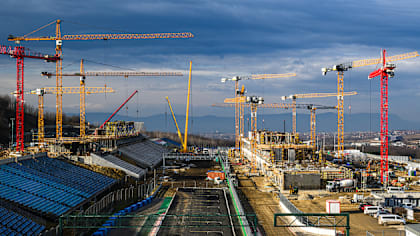
Feature
FACTS AND STATS: Verstappen hoping to banish Austria 2022 jinx after Sprint win
Share

A breathless F1 Sprint in tricky mixed conditions at the Red Bull Ring saw Max Verstappen convert his P1 grid slot into a win, after a spicy battle with team mate Sergio Perez. After a frenetic 24 laps of action, here are the hottest facts and stats from the Austrian Sprint.
-
Max Verstappen follows up his Sprint win from Austria 2022 with the win today. But it’s worth noting that it was Charles Leclerc, rather than Verstappen, who won the Austrian Grand Prix last year.
-
Verstappen led every lap of the Sprint encounter after leading every lap of the last three Grands Prix – meaning the last time anyone led a lap of competitive F1 action was Sergio Perez at the Miami Grand Prix.
-
Despite finishing P2 in the Sprint, it’s Perez who has scored the most F1 Sprint points this year with 15 to Verstappen’s 14 – Perez having taken the Sprint win in Baku.
-
Carlos Sainz has taken the most Sprint points of any non-Red Bull driver this year with 10.
-
Lance Stroll’s P4 and Fernando Alonso’s P5 marks their best-ever Sprint finishes.
2023 Austrian GP Sprint: Max Verstappen and Sergio Perez in thrilling battle for the lead at the start
-
Esteban Ocon beat George Russell to the line for P7 by just 0.009s.
-
Hamilton was the biggest position gainer in the Sprint, up eight spots from his P18 grid slot.
AS IT HAPPENED: Follow all the action from the F1 Sprint in Austria
-
Lando Norris was the biggest loser, falling six positions from his impressive P3 starting slot.
-
Finishing P10, Lewis Hamilton failed to score points in an F1 Sprint for the first time since Imola 2022.
YOU MIGHT ALSO LIKE
FeatureF1 Unlocked QUIZ: How much do you know about Ferrari's British F1 drivers?
News Hungaroring's redevelopment continues with ‘amazing transformation’ ahead of Hungarian Grand Prix
News 'One of the best feelings of my life' – Hamilton reflects on 'special' first Ferrari drive
News Hamilton shares first look at striking helmet design for new Ferrari chapter




